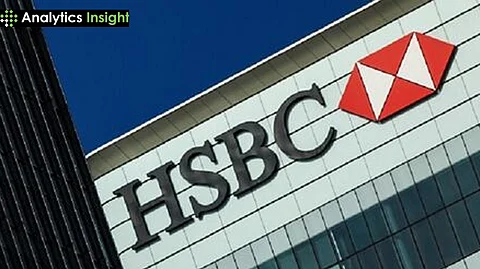

HSBC Holdings has posted a sharper-than-expected fall in earnings for the first half of 2025, as its financial ties to China and Hong Kong dragged down performance. The global bank’s pre-tax profit dropped 26% to $15.8 billion, missing analyst forecasts.
Most of this drop relates to impairment charges arising out of some long-term issues with its stake in Bank of Communications of China, and the asset quality in Hong Kong's real estate is still deteriorating.
The writedown of $2.1 billion marked the second multibillion-dollar hit on its BoCom investment within 18 months. This included a $1.1 billion accounting loss from share dilution after a private fundraising round.
Credit losses also rose significantly, reaching $1.9 billion, up by $900 million from last year. A weak post-pandemic recovery in China and declining confidence among property buyers further eroded returns in one of HSBC’s most important regions.
China’s property sector, once seen as a pillar of regional growth, continues to slump. Developers remain under pressure. Banks with exposure, including HSBC, are now dealing with rising provisions and declining loan quality. Analysts believe this trend may persist through the year, with Hong Kong’s real estate sector showing little sign of rebound.
The bank, however, is going on the offense amid the macro pullback. HSBC announced a new $3 billion share buyback program, in addition to the existing one of similar value, along with a declaration of a second interim dividend of 10 cents per share. Keeping investor confidence high is the objective as the bank grapples with the ongoing headwinds in Asia.
CEO Georges Elhedery remains focused on simplifying operations and adjusting the structure of the group. The bank is reviewing retail banking operations in Australia, Indonesia, and Sri Lanka, while the winding down of its Bangladesh operation is already underway. Corporate and institutional banking, the sturdiest wing of the group, put up a 4% increase in pretax profit, flashing signs of strength amid volatile market conditions.
HSBC shares fell 4.5% in London and more than 3% in Hong Kong following the earnings report. Although the bank benefited from higher returns in 2024, this year’s pressure from China has cast doubt over its Asia-centric strategy.
In the fourth quarter (Q4), the group still expects to report a loss of about $1.4 billion on the sale of a mortgage portfolio in France. On the other hand, shifting macroeconomic forces, ranging from trade disruptions to potentially new tariff sets, may impact HSBC profits in the quarters ahead.
As Europe’s largest lender looks for a new chairman, the spotlight remains on whether its current business model, which is heavily tied to China, can withstand prolonged disturbance.
Also Read: EU-US Trade Deal Sends S&P Futures Higher Ahead of Major Tech Earnings
